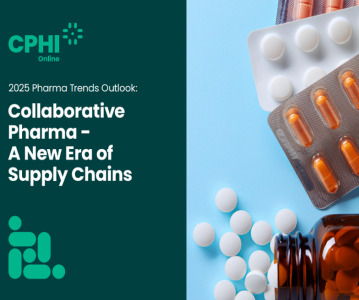Tackling pharma’s data integrity challenge

Data is the bedrock of a pharmaceutical product’s pathway to market, and the consequences of data failures can be immense. What can companies do to ensure they overcome data integrity challenges?
The pharmaceutical industry is built on data integrity. Candidate compounds only make it out of the discovery lab if the data suggest they have therapeutic potential and drug regulators only approve candidates if they have convincing efficacy and safety data.
Further along the product lifecycle, drug manufacturing is also governed by data. Regulatory bodies such as the US Food and Drug Administration and European Medicines Agency will only allow drug companies to sell products if they provide detailed evidence that production processes meet quality, efficacy and safety guidelines.
Such stringent regulatory compliance requirements mean data assessment is an ongoing process during the manufacturing stage. Drug companies are regularly asked to provide information about their manufacturing operations to show they are consistent and that the products are being made in line with specifications.
Failure to provide regulators with enough cGMP manufacturing data, or failure to prove such information is genuine, can have dire consequences. Over the past few years, multiple companies have been issued with warning letters as a result of regulators’ data integrity concerns and medicines have been withdrawn from pharmacy shelves.
"Pharmaceutical firms that fail to meet expectations risk not only having products pulled from the market and but also being hit with costly manufacturing bans"
In addition, inaccurate or flawed data provided by contractors have forced pharmaceutical companies to spend millions repeating analyses.
The net result is that as well as being a major focus for regulatory bodies, data governance and data integrity have become critical to succeeding in the pharmaceutical business.
Pharmaceutical firms that fail to meet expectations risk not only having products pulled from the market and but also being hit with costly manufacturing bans. Fortunately, innovations in artificial intelligence, machine learning and automation are helping drug companies address current electronic data integrity challenges and reshape infrastructure to minimize such issues in the future.
The definition of data integrity
The FDA defines data integrity as the assurance data records are accurate, complete, consistent, and maintained within their original context, including their relationship to other records. The agency uses the acronym ALCOA - attributable, legible, contemporaneously recorded, original or a true copy, and accurate – in its guidelines [1].
And the US regulator keeps a close eye on how pharmaceutical companies harvest and store manufacturing information. According to a recent report by Deloitte, of the 75 warning letters issued by the FDA in 2016, 43% contained instances of integrity violations [2].
The EMA also uses the ALCOA model. However, the Amsterdam-based regulator takes “a more ICH-focused approach with multiple mention of the concepts of both ‘lifecycle’ and ‘risk’ assessments,” according to analysis by Govzilla [3].
Consequences
Regardless of where they happen, the consequences of a data integrity violation can be significant, according to LaToya Lee, Quality and Regulatory Services Leader at US organization Clarkston Consulting.
“In examining the history of enforcement trends, companies who have data integrity issues have challenges recovering,” she explains. “Form 483s, warning letters, consent decrees, and withdrawn approval of new drug applications have all been the results of data integrity violations.
“The total number of FDA warning letters referencing data integrity deficiencies has increased significantly in recent years. Addressing data integrity problems identified by the FDA will carry high costs and is likely to result in manufacturing disruptions, or even in facility closings and job losses.”
Lee cites examples involving Polydrug Laboratories [4] and Ranbaxy Laboratories [5] as examples of firms that have been warned about data integrity deficiencies: “The FDA took Polydrug Laboratories to task following an in-depth inspection, citing them for failing to record or investigate quality-related customer complaints, for production deviations and inadequate controls on computerized systems. Later that year, the FDA banned imports from the India-based drug manufacturing plant.”
She also cites the FDA taking enforcement action against Ranbaxy, India’s largest manufacturer of generic drugs, including its US-based subsidiary, Ohm Laboratories. The Department of Justice (DOJ), on behalf of the FDA, filed a consent decree of permanent injunction against Ranbaxy.
“The consent decree required that Ranbaxy comply with detailed data integrity provisions before FDA would resume reviewing drug applications,” she says, adding that subsequent to the consent decree, the FDA withdrew approval of 27 Abbreviated New Drug Applications (ANDAs) held by Ranbaxy.
Identifying the cause
Irrespective of whether caused by recording errors or deliberate fraud, all data integrity issues encountered by pharmaceutical companies are ultimately down to staff, says Lee.
“The integrity of data can be challenged by various components. Recording of incomplete or inaccurate data, intentional falsification, accidental data loss or corruption, lack of proper training, and maintaining paper-based, computer-based or hybrid systems are just a few,” she says. “At the end of the day, human error is the biggest challenge to maintaining data integrity.”
“Pharmaceutical manufacturing companies should determine how and where they need to collect data and do a proper assessment of their requirements vs. viable solutions" - LaToya Lee, Clarkston Consulting
The issue has now moved way beyond merely transferring a paper record system to an electronic system. In the past decade, various technologies that remove the human error from the data collection and storage process have emerged. Quality Management Systems, Data Analytics applications and Business Intelligence Tools can be used to gather and process data automatically.
This has been a positive development, according to Lee: “Removing the human element of data recording and retention through artificial intelligence, machine learning, and automation can protect original data from accidental or even intentional modification, falsification or deletion. Any technology which can improve accuracy will ensure reliable and trustworthy records which can withstand scrutiny during regulatory inspections.”
Technology needs a plan
But having the technology will not solve the problem unless it is used in accordance with a detailed data integrity plan, Lees says, adding that often calling on contractors with expertise is the best way to develop such infrastructure.
“Pharmaceutical manufacturing companies should determine how and where they need to collect data and do a proper assessment of their requirements vs. viable solutions,” she says. “This might be a place where it may make sense to engage an external third party to perform a data integrity assessment, to help determine the best path forward.”
A holistic approach taking into account all data generated by all operations is key, according to Lee, who warns that failure to integrate information could result in data ‘siloes.’
She explains that all aspects of an organization’s practices must be working effectively, and properly monitored and controlled, to ensure data integrity across the organization; the focus should not only be to prevent deficiencies but to encourage a culture of data integrity.
“An overarching governing quality organization should be in place to ensure foundational data integrity principles are universally applied and held accountable,” she concludes.
References
[5] https://www.nature.com/news/2009/090302/full/news.2009.130.html
Related News
-
News How GLP-1 agonists are reshaping drug delivery innovations
GLP-1 agonist drug products like Ozempic, Wegovy, and Mounjaro have taken the healthcare industry by storm in recent years. Originally conceived as treatment for Type 2 diabetes, the weight-loss effects of these products have taken on unprecedented int... -
News 2025 Pharma Trends Outlook: Collaborative Pharma – A New Era of Supply Chains
A new year, a new Pharma Trends Outlook report! The 2025 Pharma Trends Outlook report examines key changes expected in the pharmaceutical industry for the coming year, particularly in regards to the supply chain. -
News AI-driven drug discovery model sets new accuracy prediction benchmark
Iambic Therapeutics, an Nvidia-backed biotech based in London, have stated that their AI drug discovery model named ‘Enchant’ demonstrates the potential to reduce the time and cost associated with new drug development. -
News On Track at CPHI Milan: Thermo Fisher Scientific Track Sponsor interview
With CPHI Milan just around the corner, we sat down with some of the sponsors for this year’s conference tracks to discuss the most pressing topics in pharma. -
News Viral marketing for B2B pharma businesses: a CPHI Online case study
Discover how a Chinese chemical manufacturing company went viral on TikTok, and what their viral success means for the future of B2B digital marketing for the wider pharmaceutical industry and supply chain. -
News Sanofi to collaborate with OpenAI and Formation Bio
Pharmaceutical giant Sanofi have announced a collaboration with Formation Bio and OpenAI to build AI-powered software for accelerated drug development. -
News CPHI Online Webinar Series – Optimising Pharma Manufacturing through Digital Transformations
This month’s CPHI Webinar Series explored achieving manufacturing excellence in pharma through the digitalisation of daily processes. Presented by Joe Doyle, Head of Sales at EviView, and Bikash Chatterjee, President and Chief Scientific Off... -
News Western pharma groups warn of supply disruptions over China anti-spy law
China’s anti-espionage laws have caused concern among western pharmaceutical groups over potential arrests or denial of access for foreign inspectors in China-based facilities and manufacturing partners, posing a risk to the supply of drug produc...
Position your company at the heart of the global Pharma industry with a CPHI Online membership
-
Your products and solutions visible to thousands of visitors within the largest Pharma marketplace
-
Generate high-quality, engaged leads for your business, all year round
-
Promote your business as the industry’s thought-leader by hosting your reports, brochures and videos within your profile
-
Your company’s profile boosted at all participating CPHI events
-
An easy-to-use platform with a detailed dashboard showing your leads and performance





.png)
.png)
.png)